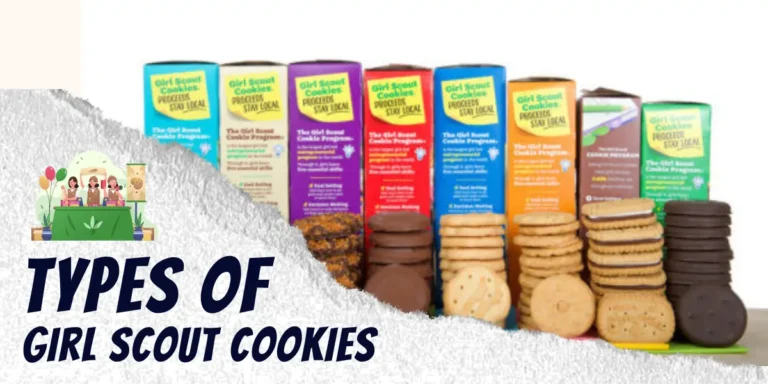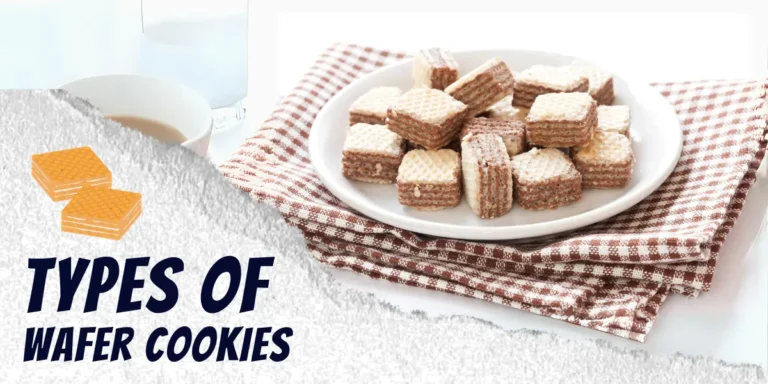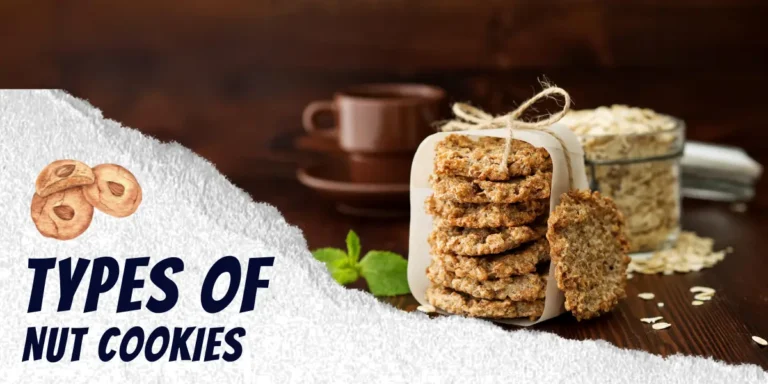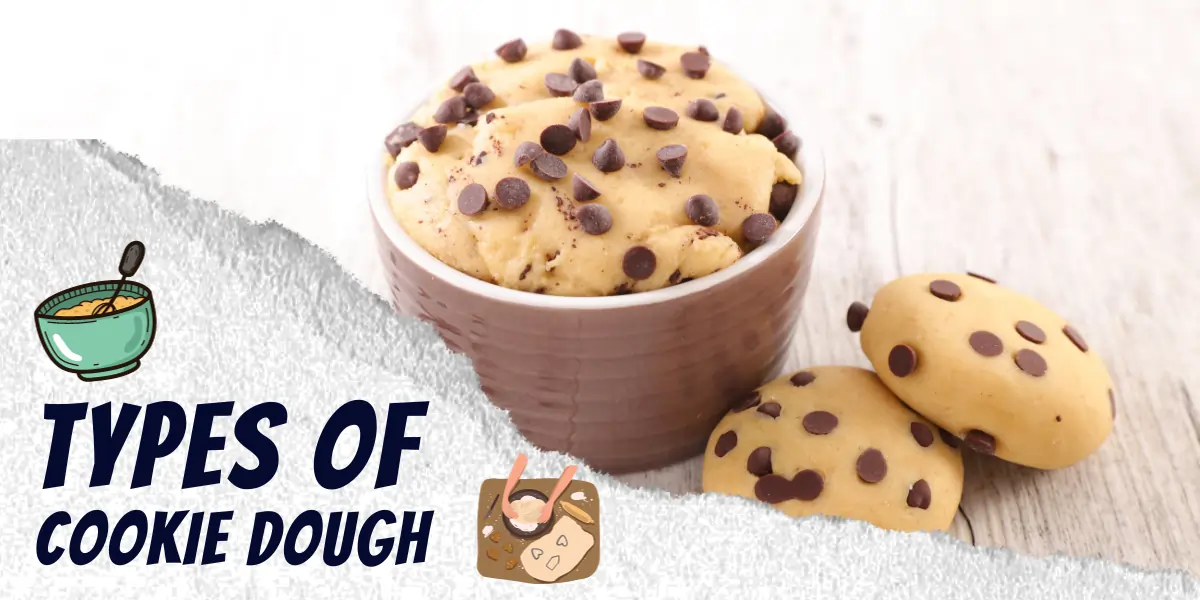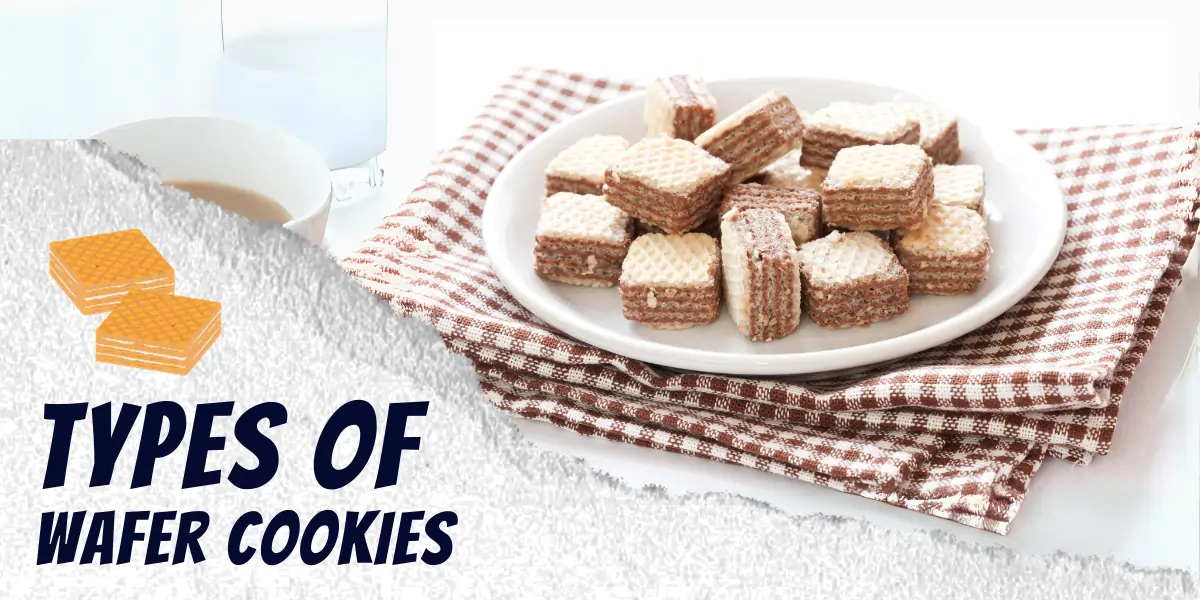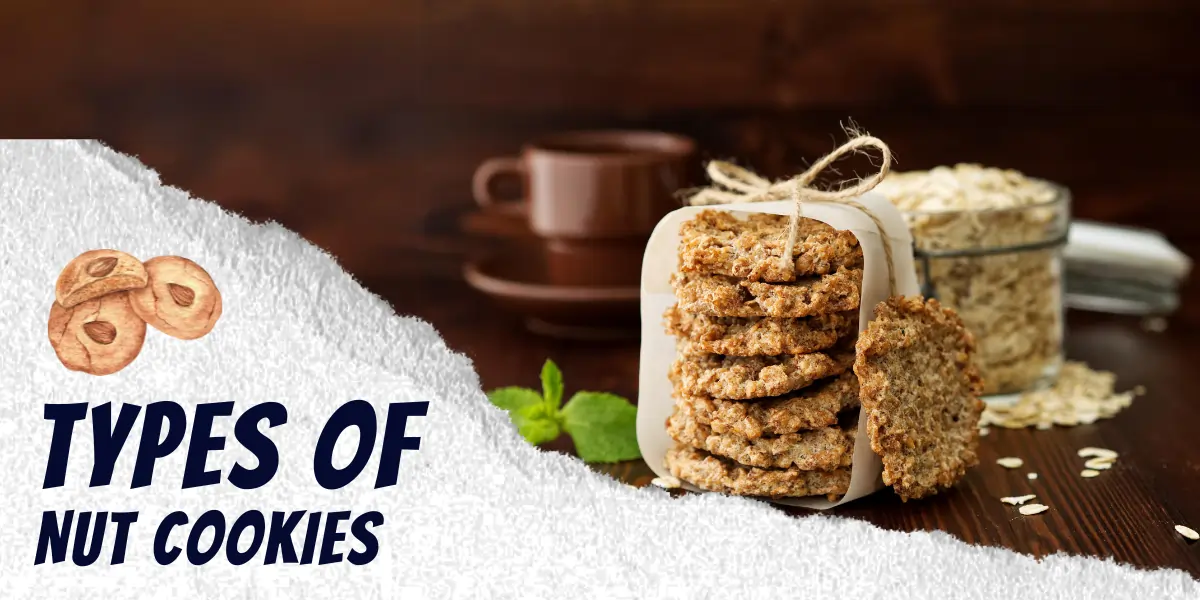From edible snacking doughs to slice-and-bake creations, cookie dough comes in all shapes and sizes. This guide will walk you through the need-to-knead details on the many types of cookie dough, from texture and ingredients to proper storage and use cases. Grab a glass of milk because we’re about to get elbow-deep in cookie dough diversity.
Table of Contents
An Intro to Cookie Dough
Before diving headfirst into the dough, let’s quickly define what cookie dough actually is. Cookie dough refers to any dough that is made for baking cookies, consisting of some combination of flour, sugar, fat, eggs, leavening agents, spices, chocolate chips or other mix-ins.
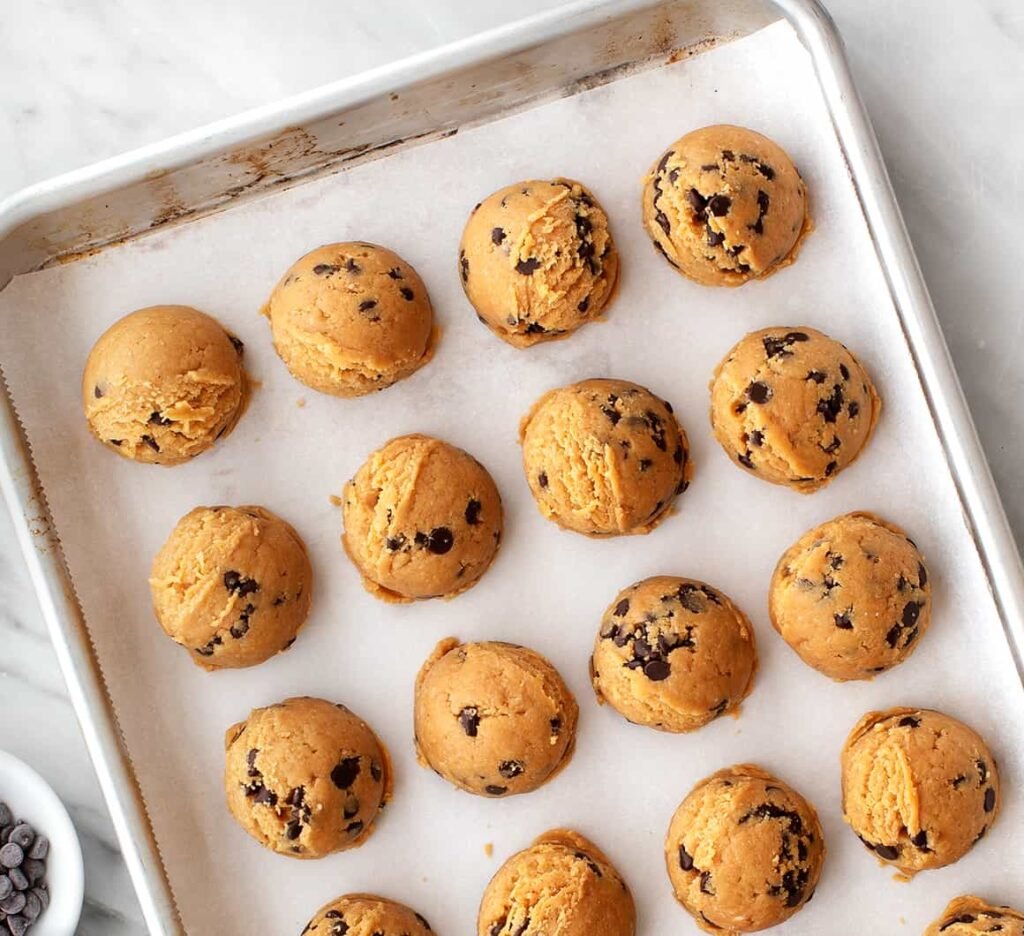
The primary types of cookie dough can be segmented into:
- Refrigerated dough
- Frozen dough
- Edible dough
- Slice-and-bake dough
Cookie dough can then be divided into more specific categories based on factors like intended use, recipe ingredients, dough texture, and more. We’ll explore all the types in detail throughout this post.
Now onto the good stuff…time to stick our hands into each scrumptious dough type!
Refrigerated Cookie Dough
Refrigerated cookie dough, often found prepackaged in tubes or tubs at the grocery store, is designed to be scooped and baked immediately into warm, gooey cookies. Let’s break down the key qualities:
Packaged Refrigerated Dough
This is likely what comes to mind when you think cookie dough. The Pillsbury Doughboy beams proudly from nearly every grocery store shelf, tempting all who pass by with the promise of convenience baking.

Characteristics:
- Pre-portioned into ready-to-bake slices or scoops
- Store-bought; comes packaged in tubes or tubs
- Includes leavening agents like baking soda or powder
- Ready to bake without requiring extra ingredients
- Sold refrigerated or frozen to maintain freshness
- Lasts 1-2 weeks refrigerated; 4-6 months frozen
- Changes texture if left at room temperature too long
Key Brands: Pillsbury, Nestlé Toll House, Annie’s, Trader Joe’s
| Pros | Cons |
|---|---|
| Super convenient; no measuring or mixing | Limited flavor options |
| Yields reliable, consistent cookie results | Contains preservatives and stabilizers |
| Mess-free; no dough splattered everywhere | Not as customizable as homemade dough |
| Fun, interactive activity for kids |
Homemade Refrigerated Dough
The homemade version mimics packaged dough in form and function but with the flexibility to experiment. Think custom add-ins, secret family recipes, etc.
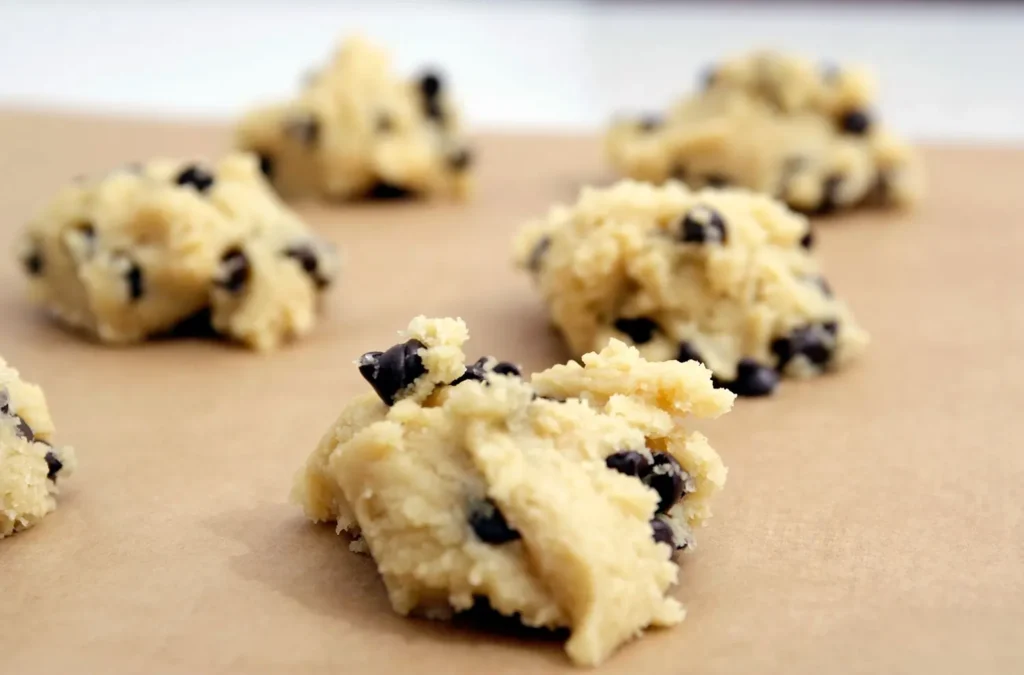
Characteristics:
- Scoop-and-bake consistency
- Created at home based on any cookie recipe
- Stored in airtight container in the refrigerator
- Keeps 1-2 weeks before baking
- Same leavening agents as packaged dough
| Pros | Cons |
|---|---|
| Endless flavor combinations | Time-consuming prep work |
| Control ingredients to avoid allergens | Must store properly to prevent spoilage |
| Fresh, wholesome taste | Results less reliable than packaged |
| Saves time on future cookie batches |
Use Cases:
Both packaged and homemade refrigerated dough works for any standard baking use: holiday cookie platters, birthday treats, packing kids’ lunches, late night chocolate cravings, etc. The convenience factor makes it ideal for times when you want fresh baked cookies but don’t have time to mix a full batch.
Storing in ready-to-bake portions also lets you enjoy the cookies in smaller doses over time rather than facing a mountain of leftovers before they go stale. Refrigerated dough makes snacking warm and personalized.
Frozen Cookie Dough
Frozen cookie dough offers long-term storage flexibility combined with quick baking convenience whenever a cookie craving strikes. Here’s an inside look:
Packaged Frozen Dough
Nestled between pints of ice cream, packaged logs of frozen cookie dough can satisfy sweet tooth emergencies in an instant.
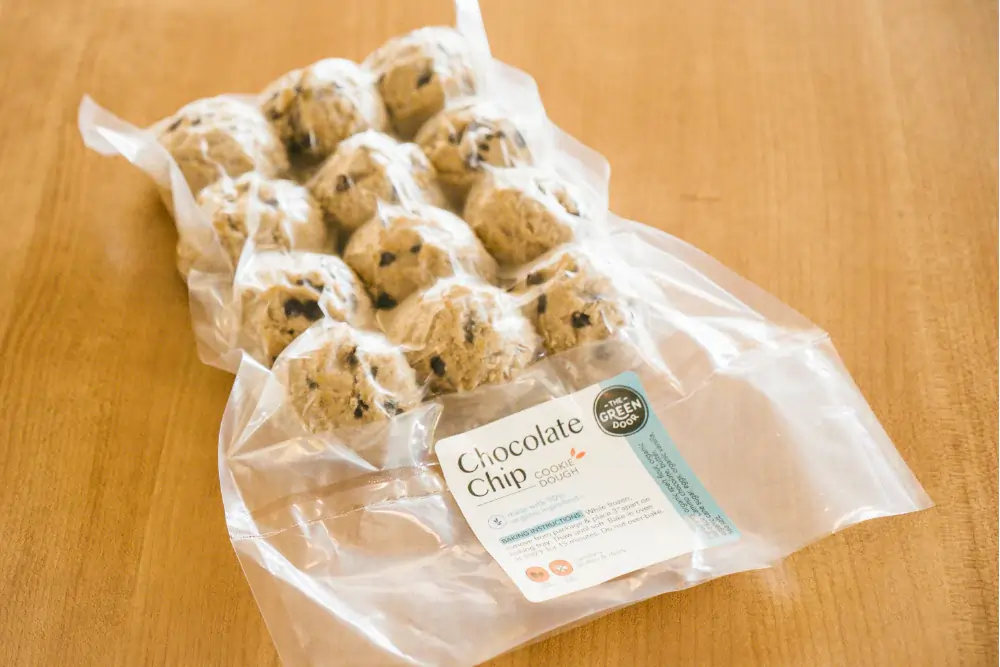
Characteristics:
- Comes commercially prepared in plastic-wrapped logs
- Stores 6-12 months in the freezer
- Requires thawing and baking before eating
- Yields 1-3 dozen cookies per log
- Packaging indicates bake time and temp
- Maintains scoop-and-bake consistency
Popular Flavors: Chocolate Chip, Sugar Cookie, Peanut Butter
| Pros | Cons |
|---|---|
| Extremely long shelf life | Limited flavor selection |
| Always ready for last-minute baking | Short window of peak freshness |
| Easy to split up for small batches | Freezer burn risk if stored too long |
Homemade Frozen Dough
For even more variations, freeze custom dough creations at home straight from the mixing bowl.

Characteristics:
- Any homemade cookie dough recipe
- Scooped onto baking sheets and frozen
- Transferred to bags/containers for storage
- Thaw overnight in fridge before baking
| Pros | Cons |
|---|---|
| Tailor flavors and ingredients | Time-consuming to portion out |
| Freeze in single servings as needed | Requires lots of freezer space |
| Save leftover dough for later | Less convenient than pre-portioned |
Use Cases:
Frozen dough shines when you’re short on time but need a sweet pick-me-up. Keep a stash of different doughs to satisfy any craving – fudgy chocolate cookies one night, festive sugar sprinkles the next. It also minimizes waste from leftover dough or ingredients with short shelf lives like bananas or eggs. Freeze now, bake later!
Edible Cookie Dough
Warning: eating raw cookie dough is an extreme temptation. But with edible doughs designed to be safely consumed unbaked, you can indulge risk-free! Here’s the inside scoop:
Ready-to-Eat Dough
Prepackaged edible dough delivers finger-licking goodness without the baking step.

Characteristics:
- Sold refrigerated or frozen and ready to eat
- Substitutes raw egg with pasteurized egg product
- Uses heat-treated flour to remove food-borne risks
- Often shape into cookie dough “pucks” or balls vs logs
- Ideal snacking texture – dense and fudgy
Key Brands: Nestlé Toll House, Pillsbury
| Pros | Cons |
|---|---|
| Bypasses baking time for instant gratification | Limited flavor selection in stores |
| Fun novelty appeal for kids and adults alike | Texture more dense than baked goods |
| Safer than homemade edible dough | Must refrigerate carefully between snacking |
Homemade Edible Dough
For bold unique flavors, craft homemade edible doughs using specialized recipes calling for heat-treated flour and egg substitutes.

Characteristics:
- Swaps raw eggs for pasteurized eggs
- Uses pre-treated flour to eliminate E.coli risk
- Chilled before serving for food safety
- Gets texture boost from cream cheese/nut butters
Creative Flavors: Cake Batter, Lemon Raspberry, PB&J
| Pros | Cons |
|---|---|
| Ultra customized combinations | Risk of improper ingredient substitution |
| Excellent gift or party snack | Must handle carefully to prevent food illness |
| Saves energy costs of baking | Shorter shelf life than baked goods |
Use Cases:
Edible cookie dough shines as a playful crowd-pleasing snack for game nights, birthday parties, school fundraisers, sleepovers, and anytime a sugar rush mood boost sounds good. It also makes a fun activity for kids to roll into balls or shape into “cookies” without turning on the oven.
Slice-and-Bake Cookie Dough
For buttery cookies with thick edges and soft, under-baked middles, slice-and-bake dough delivers. Learn the characteristics of this dough variety below:

Characteristics:
- Rolled into logs, chilled, and sliced before baking
- Produces thick, bakery-style cookie shapes
- Yields chewy, fudgy cookies if slightly under-baked
- Can use refrigerated dough or custom create
Popular Shapes: Circles, Squares with jagged edges
| Pros | Cons |
|---|---|
| Easy to split up for small batches | Tricky not to overbake into crunchy cookies |
| Makes uniformly shaped cookies | Time-consuming to chill if making from scratch |
| Achieves soft and chewy texture | Limited flavors compared to scoop dough |
Use Cases:
Slice-and-bake cookies bring that fresh-from-the-oven warmth served under-baked and deliciously gooey. The uniform edges and bottoms also make them prime candidates for icing, sprinkles, and other decorations. Whip these up to create bakery gift baskets or to ship homemade care packages.
Seasonal Cookie Dough
When pumpkin spice season emerges or red and green take over the aisles, cookie dough transforms into a festive limited-time offering.
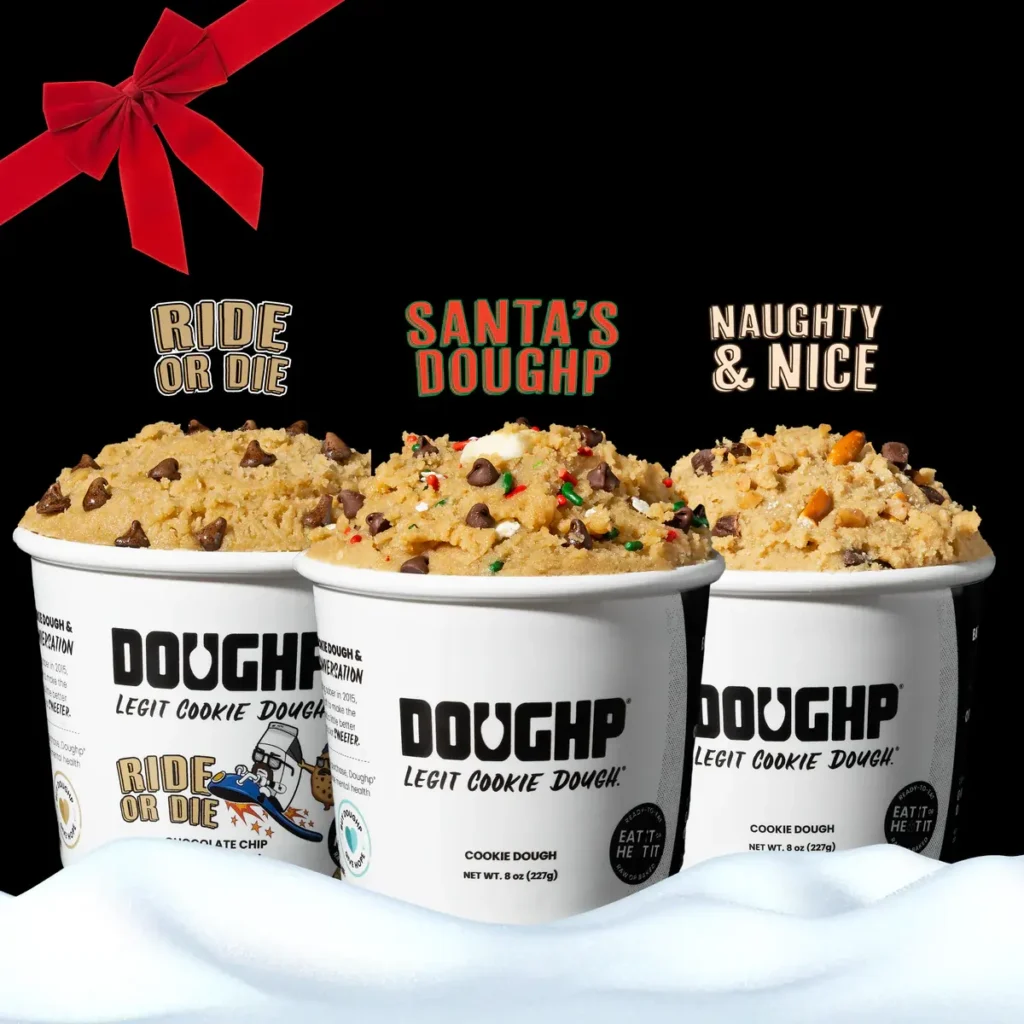
Characteristics:
- Unique dough flavors tied to seasonal events
- Often feature decorative shapes and toppings
- May release in coordination with cultural holidays
Popular Occasions: Christmas, Halloween, Valentine’s Day
| Pros | Cons |
|---|---|
| Limited availability builds excitement | Short lived; available only 1-2 months |
| Festive shapes, colors, and flavors | Strong Seasonings overpower more subtle flavors |
| Boosts sales revenue for brands | Shapes don’t always hold form during baking |
Use Cases:
Seasonal dough sparks joy through edible nostalgia. It captures the sights, smells, and tastes of beloved celebrations on the calendar. Breaking out this special cookie dough lets you lean into traditions and fond memories. Plus, knowing it disappears from shelves adds urgency to savor the limited magic.
Gluten-Free Cookie Dough
With rising awareness of food allergies and special diets, gluten-free dough options bring cookies to more people.
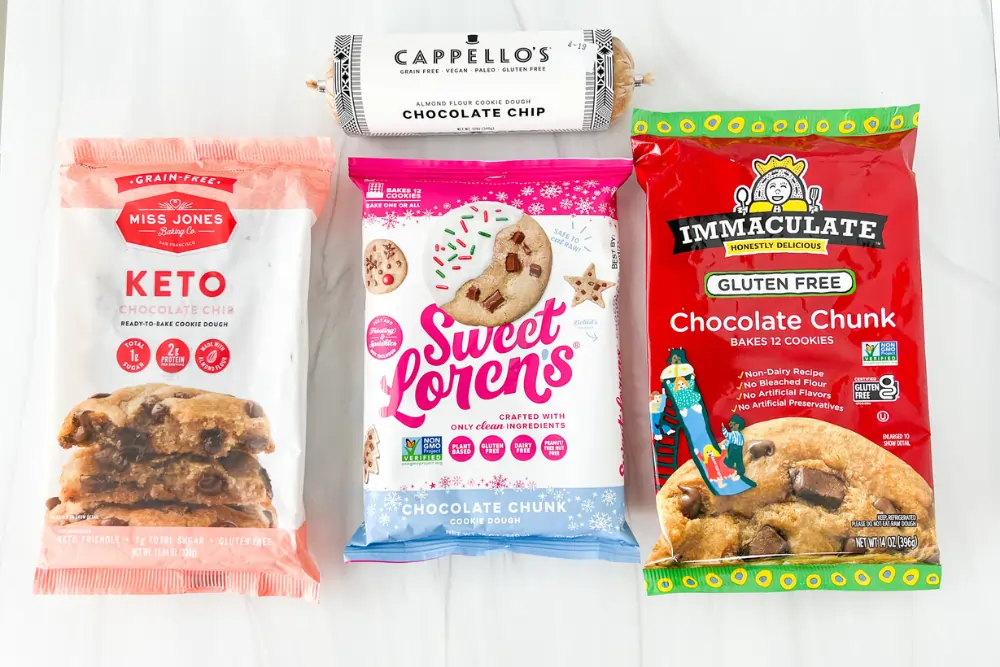
Characteristics:
- Uses alternate flours like almond, coconut
- Binders like xanthan gum add elasticity
- Denser, more cake-like texture
- Packaged dough clearly labels allergy info
Sub-brands: Pillsbury Gluten Free, Annie’s Gluten Free
| Pros | Cons |
|---|---|
| Inclusivity for managing medical conditions | Smaller selection of recipes |
| Taste and texture improving over time | Higher price point than standard dough |
| Mirrors traditional dough functionality | Struggles achieving same soft, chewy cookie |
Use Cases:
Gluten-free doughs create welcoming experiences for groups with diverse dietary needs – family gatherings, school parties, office treats. They also provide access for those managing health conditions like Celiac disease who don’t want to miss out. The added effort makes for meaningful inclusion.
Sugar Cookie Dough
Crisp on the outside, tender inside – sugar cookie dough bakes up sweet nostalgia. Discover more about this beloved base below.
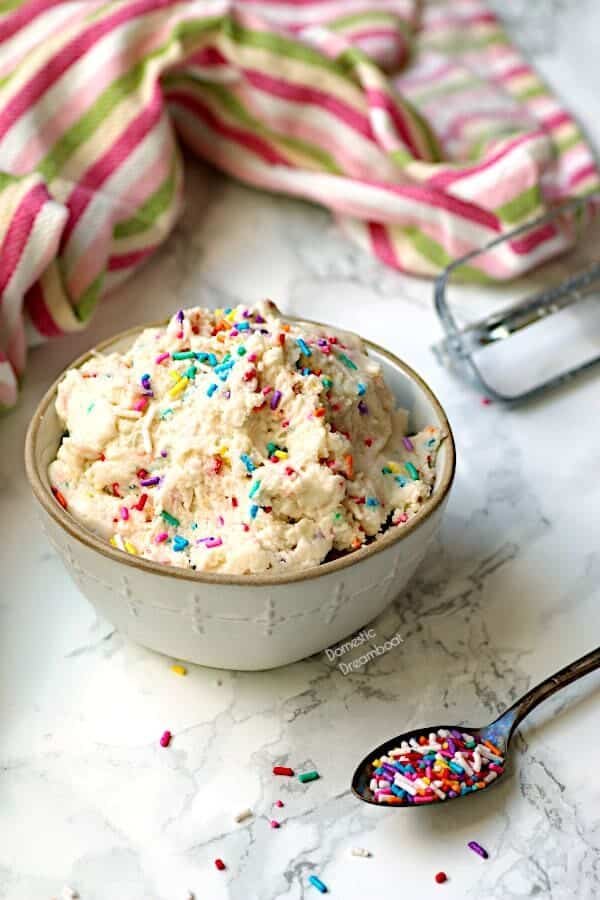
Characteristics:
- Features granulated white sugar as main sweetener
- Butter or shortening lend rich flavor and texture
- Warm vanilla aroma and hint of creamy sweetness
- Typically flat round shape with decorated icing
Popular Shapes: Circles, Christmas trees, hearts
| Pros | Cons |
|---|---|
| Universal crowd pleaser flavor | Subtle flavor masks textures issues |
| Adaptable canvas for decorating | Tricky not to overbake into dry cookie |
| At home in any season | Too plain for some palates |
Use Cases:
Sugar cookie dough delivers a blank slate prime for personalization – handprint shapes with a child’s name, college logos iced ahead of graduation, or flowers and rainbows just because.
It also mix-and-matches seamlessly with other doughs in gift baskets. And the warm, familiar essence feels right for celebrating all year round.
Chocolate Chip Cookie Dough
No cookie dough guide would be complete without the ubiquity of chocolate chip. America’s favorite comfort food, learn all about CC below:
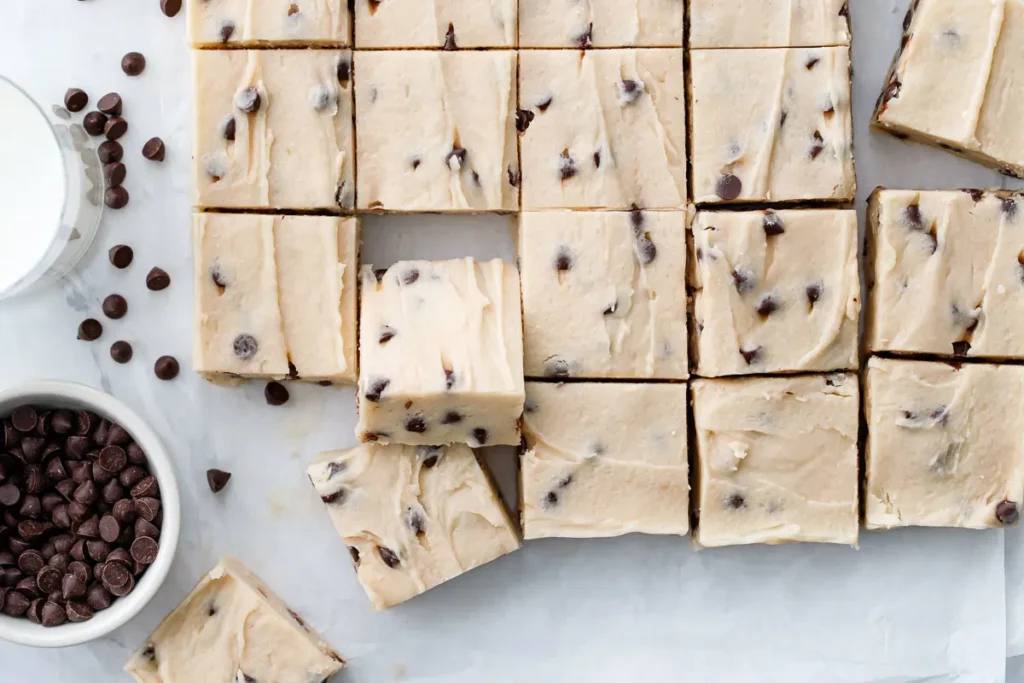
Characteristics:
- Dotted with melted chocolate morsels
- Balance of sweet and semi-sweet flavors
- Signature crackled tops
- Light brown hue
| Pros | Cons |
|---|---|
| Crowd pleasing taste hard to improve upon | Easy to overbake into crunchy cookie |
| At home in any recipe: cookies, ice cream, etc. | Chocolate melts away if dough gets too warm |
| Stands well on its own | Makes it difficult to add mix-ins |
Use Cases:
Warm from the oven or topped on ice cream, chocolate chip cookie dough plays well with everything. The melty morsels nestled in sweet dough awaken the inner child in all of us.
It’s the perfect midday treat to power through a slump or late night bite when you need a friend. Chocolate chip cookie dough is arguably America’s emotional support companion.
Peanut Butter Cookie Dough
For nutty comfort with a salty-sweet accent, peanut butter cookie dough can’t be beat. Check out the key characteristics:
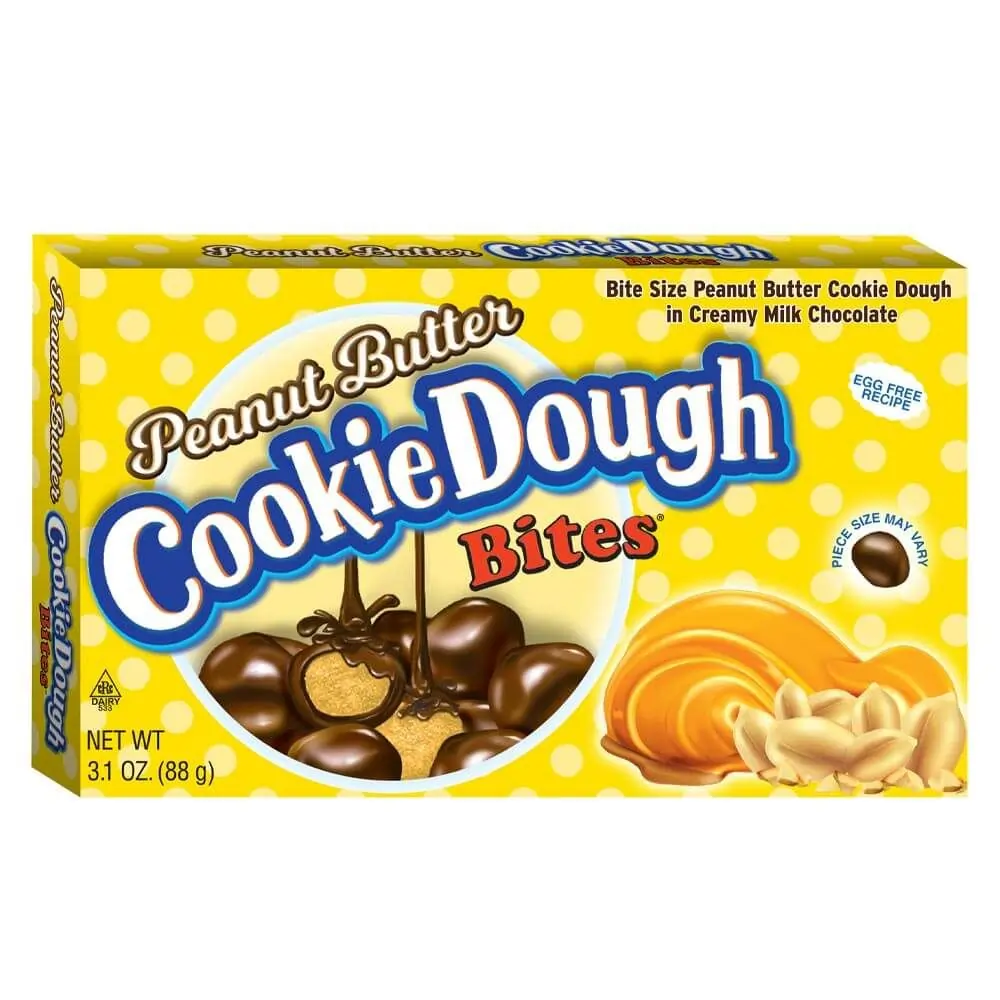
Characteristics:
- Distinct, prominent peanut flavor
- Dense, grainy texture
- Often features criss-cross fork markings
- May include chocolate chips for added decadence
| Pros | Cons |
|---|---|
| Beloved flavor profile nearly everyone enjoys | Overpowers more delicate mix-ins |
| Shelf-stable pantry ingredients | Higher calories/fat than other doughs |
| Toasty aroma whets appetites | Intense flavor too much for some |
Types of Peanut Butter: What You Need to Know
Use Cases:
With kid-friendly flavor, peanut butter dough makes the perfect after school snack – whether baked into warm cookies or rolled into edible dough balls. It also shines on gift trays around the holidays for an easy crowd-pleaser. The distinctive scent and nuttiness excite tastebuds of all ages.
Oatmeal Cookie Dough
For hearty whole grain cookie options, oatmeal cookie dough brings nutritious heft. Explore more around this fiber-filled base:
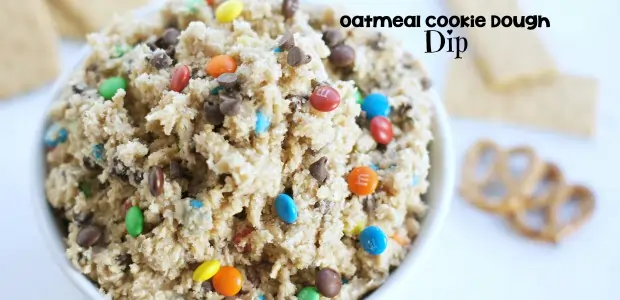
Characteristics:
- Features oats as main ingredient
- Thick dough with clusters of oatmeal
- Often includes raisins, dried fruit
- Chewy texture in baked form
| Pros | Cons |
|---|---|
| Higher fiber than traditional dough | Polarizing opinion on oatmeal raisin |
| Heart-healthy fat from oats | Dense dough tricky to work with |
| Pair well with numerous mix-ins | Quickly goes stale after baking |
Use Cases:
Oatmeal dough makes the perfect wholesome cookie to tuck in a lunchbox, bring to a bake sale, or fill a grocery store sampler.
The thick, chewy texture also holds up well for dunking in milk without crumbling to pieces. And you can customize endlessly with nuts, spices, dried fruit, and beyond – upgrading nutrition along the way.
Cookie Dough Hybrids
As we’ve explored in depth now, cookie dough takes many wondrous forms. And creative bakers keep pushing boundaries further, blending OTHER dessert formats into dough genre-bending hybrids. Behold a few examples:
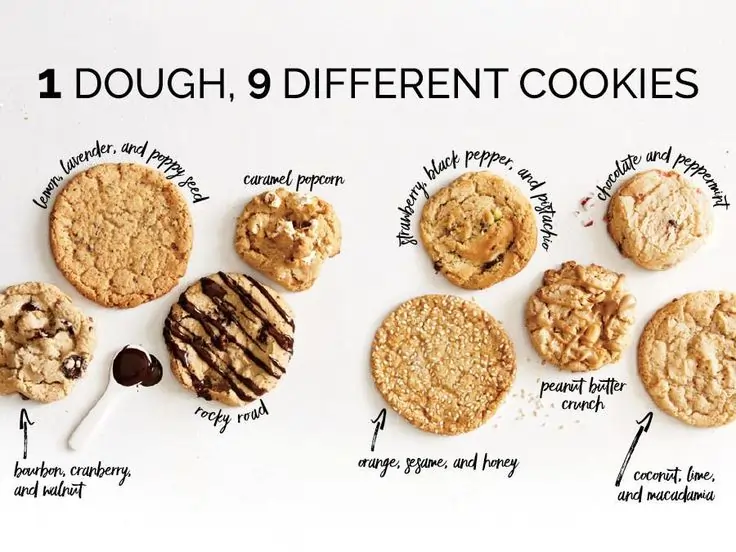
Conclusion & Next Steps
We’ve rolled, sliced, scooped, and snacked our way detailing different types of cookie dough. From signature chocolate chip to gluten free and everything between, cookie dough continues evolving with creative new flavor combos and forms. What will bakers dream up next – bubblegum popping cookie dough or neon tie-dye sugar swirl confetti?
Now that your cookie dough IQ runs deep, put knowledge into practice! Try a new dough variety each week or experiment blending flavors and formats. Set up a decorate-your-own cookie dough station at a kid’s birthday party. Or gift edible dough logs to friends as a care package.
If one thing’s clear after diving deep on this topic, it’s that cookie dough possibilities stay endless. And we’ll happily snack along to discover what’s next! What unexpected flavor or mashup would you create? Let us know in the comments below!


